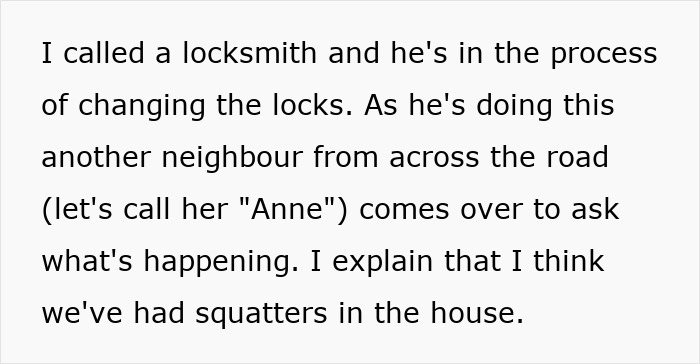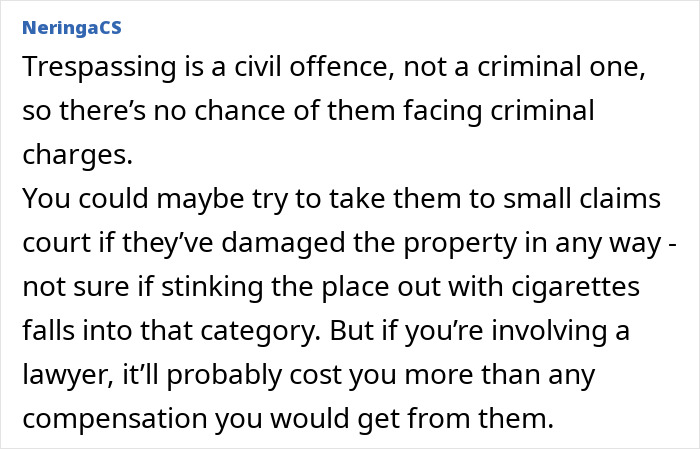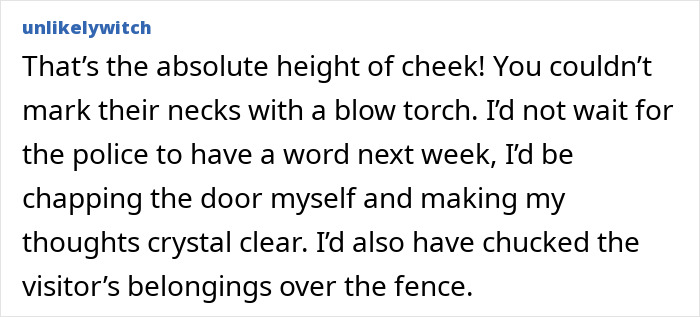Many people consider their neighbors as part of their extended family. They establish a relationship based on trust and help each other during times of need.
This couple, however, decided to undermine that trust when they used their late neighbor’s house as a hotel for their relatives. They left the home in disarray, infuriating the woman’s family.
The daughter is now contemplating filing trespassing charges against the couple, but wonders if she has the right to do so.
A woman is infuriated after learning that her late mom’s house had been used as an accommodation for strangers

Image credits: ionadidishvili / Envato (not the actual photo)
Her mom’s next-door neighbors had a key to the empty home and allowed their relatives to stay








Image credits: bialasiewicz / Envato (not the actual photo)
She is thinking about filing trespassing charges, but isn’t sure if she has the right to


Trespassing isn’t always a criminal offense
It is generally understood that trespassing is entering someone else’s property without their permission. However, different jurisdictions impose varying sanctions.
In the United States, for example, intent matters when determining whether it’s a civil or criminal charge. In some cases, accidentally entering a property does not warrant a trespassing charge because of a lack of intent.
The same case can apply if an accused person is unaware that the property is off-limits because there are no disclaimer signs or verbal warnings from the owner.
In the UK, where the story seemed to have taken place, trespassing through squatting is a criminal offense. According to England-based legal firm Milners Solicitors, offenses are punishable with up to six months in prison and/or a £5,000 ($6.600) fine.
Law enforcement can only intervene if the trespassers have caused or plan to cause damage or harm. In the story’s case, the erring neighbors caused a lot of damage and were rightfully arrested.
But could such instances be prevented? University of Maryland legal specialist Paul Goeringer advises fencing off properties to create deterrents against potential trespassers. Natural buffers that would keep the house from being in plain view from the road would suffice.
Unfortunately, the author was completely unaware of her mother’s dealings with “Jean” and “John,” and how they had the key to the home. She had to deal with the damage after the fact.
Commenters were appalled by the neighbor’s behavior, as some clarified the laws about trespassing














The woman provided an update as the story took on a more dramatic turn











